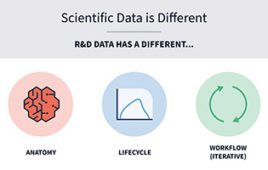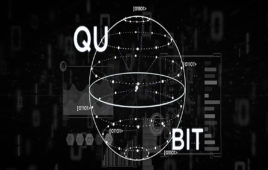 Fully automated “deep learning” by computers greatly improves the odds of discovering particles such as the Higgs boson, beating even veteran physicists’ abilities, according to findings by UC Irvine researchers published in the journal Nature Communications.
Fully automated “deep learning” by computers greatly improves the odds of discovering particles such as the Higgs boson, beating even veteran physicists’ abilities, according to findings by UC Irvine researchers published in the journal Nature Communications.“We are thrilled with the publication of our work,” said co-author Pierre Baldi, Chancellor’s Professor of computer science, “and even more so with the hope that deep learning may help solve fundamental open questions about the nature of matter, gravity and the origin of the universe.”
Baldi, along with computer science Ph.D. student Peter Sadowski and associate professor of physics & astronomy Daniel Whiteson, found quicker, more efficient ways to analyze data obtained from particle accelerators/colliders to better detect rare particles.
The Higgs boson — first theorized in 1964 and whose existence was finally confirmed in 2012 at the massive, underground Large Hadron Collider near Geneva, Switzerland — could help explain why some particles have mass, among other primary questions of physics. Finding these particles requires sorting out relevant data from huge amounts of background noise; machine learning techniques are already used in analyzing these sets of “big data.”
“Machine learning is a branch of computer science where, rather than computers being programmed to do a difficult task, computers learn automatically from examples,” Baldi explained. “It’s very difficult to write from scratch a program that can recognize elephants in images — or Higgs bosons in collider data. But we can provide to the computer many examples of images with and without elephants, or accelerator data with and without Higgs bosons, and let the computer learn automatically from these examples.”
Currently, physicists devise by hand mathematical formulas that they apply to the data to derive the features they’re looking for, which are then fed to machine learning programs. By employing recent advances in deep learning, in which computers learn automatically at multiple processing levels, the UCI team eliminated the need for the time-consuming manual creation of those formulas in the search for these fleeting particles — which don’t even exist in our universe under normal conditions.
“These new, smarter deep learning networks have shown themselves to be better at finding hints of new particles than past machine learning methods — and than physicists with years of experience,” Whiteson said. “They don’t need any help from human insight, achieving a level of automatic learning which has been a long-standing goal in high-energy physics.”
In computer experiments using carefully structured simulated data, the UCI researchers’ methods resulted in a statistically significant 8 percent increase in the detection of these particles.
The techniques could be employed in experiments scheduled for 2015 at the Large Hadron Collider, Baldi said.




